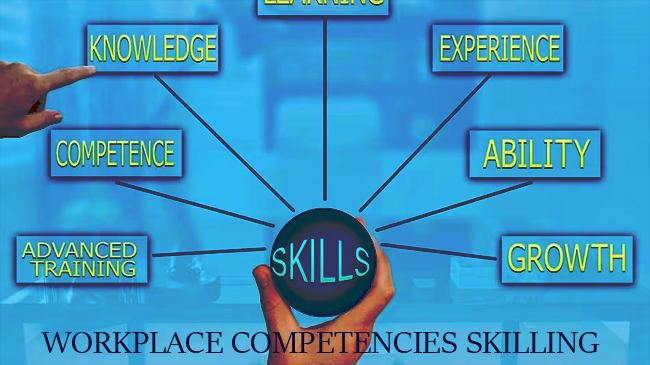In today’s fast-paced and competitive job market, employers are looking for individuals who possess a diverse range of workplace competencies that can help their organization grow and succeed. Workplace competencies refer to the skills, knowledge, and behaviors that an individual needs to perform their job effectively and contribute to the success of their organization. Skilling in workplace competencies is crucial for individuals to improve their employability and career prospects.
Here are some of the most important workplace competencies that individuals should consider skilling in to improve their career prospects:
- Communication skills : Effective communication is essential in the workplace, and individuals who possess strong communication skills are highly valued by employers. Skilling in communication includes the ability to listen actively, convey information clearly and concisely, ask questions, provide feedback, and resolve conflicts.
- Teamwork : Collaboration is key in many workplace settings. Skilling in teamwork means the ability to work collaboratively with others, including sharing knowledge and skills, being open to feedback, and respecting others’ opinions and perspectives.
- Problem-solving : Individuals who possess strong problem-solving skills are highly valued by employers. Skilling in problem-solving includes the ability to analyze information, identify problems, develop solutions, and implement and evaluate those solutions.
- Critical thinking : Critical thinking skills are highly valued in the workplace, and individuals who possess them are better equipped to make informed decisions. Skilling in critical thinking includes the ability to analyze information, evaluate arguments, and identify potential biases or flaws in reasoning.
- Adaptability : The ability to adapt to changing circumstances is becoming increasingly important in the workplace. Skilling in adaptability means being able to adjust to changing environments, new technologies, and evolving business needs.
- Time management : Effective time management is essential in the workplace, and individuals who possess this skill are highly valued by employers. Skilling in time management includes the ability to prioritize tasks, manage deadlines, and use time efficiently.
- Leadership : Strong leadership skills are essential for individuals who aspire to management roles. Skilling in leadership means the ability to motivate and inspire others, make decisions, and communicate effectively.
- Emotional intelligence : Emotional intelligence is becoming increasingly important in the workplace, and individuals who possess this skill are highly valued by employers. Skilling in emotional intelligence includes the ability to recognize and manage one’s own emotions, as well as the emotions of others.
- Technical skills : Technical skills are essential in many industries, and individuals who possess them are highly valued by employers. Skilling in technical skills includes the ability to use specialized software, operate machinery, or perform specific tasks related to one’s industry.
- Customer service : Individuals who possess strong customer service skills are highly valued in industries that rely on customer satisfaction. Skilling in customer service includes the ability to communicate effectively with customers, respond to their needs and concerns, and provide excellent service.
- Creativity : Creativity is becoming increasingly important in many industries, as employers seek individuals who can think outside the box and come up with innovative solutions. Skilling in creativity includes the ability to generate new ideas, experiment with different approaches, and take risks.
- Networking : Networking is becoming increasingly important in today’s job market, as individuals seek to build relationships with others in their industry. Skilling in networking includes the ability to connect with others, build relationships, and cultivate professional contacts.
- Cultural awareness : Cultural awareness is becoming increasingly important in today’s globalized workplace. Skilling in cultural awareness includes the ability to understand and appreciate different cultural perspectives, as well as the ability to work effectively with individuals from diverse backgrounds.
![]()






One thought on “WORKPLACE COMPETENCIES SKILLING”